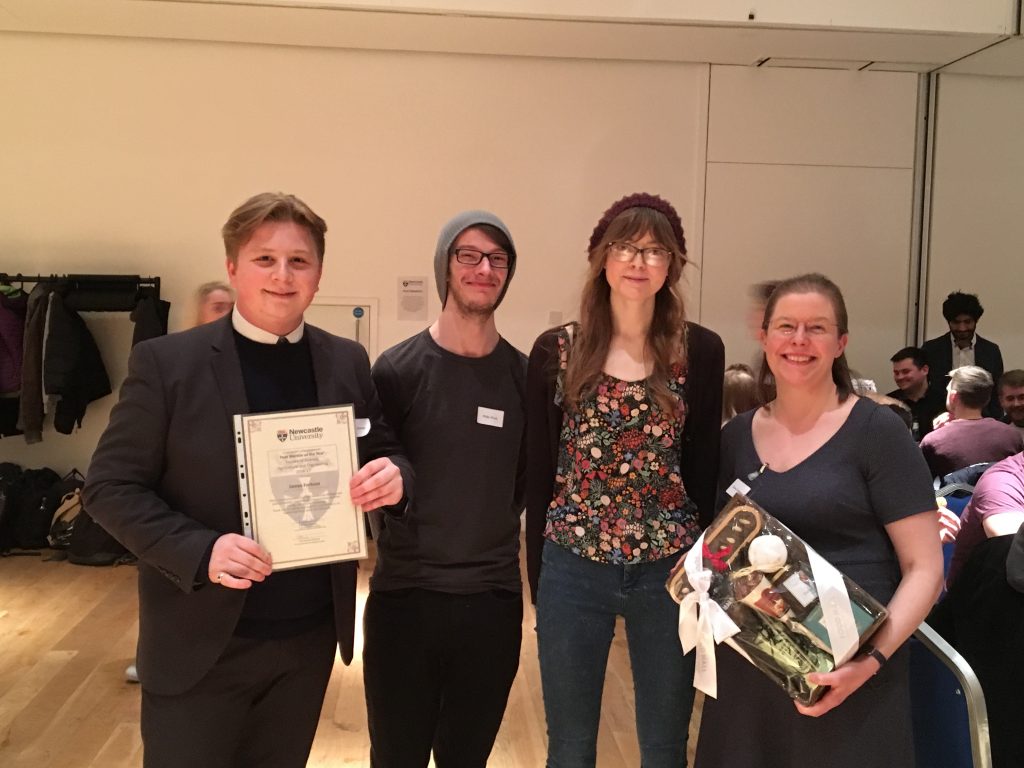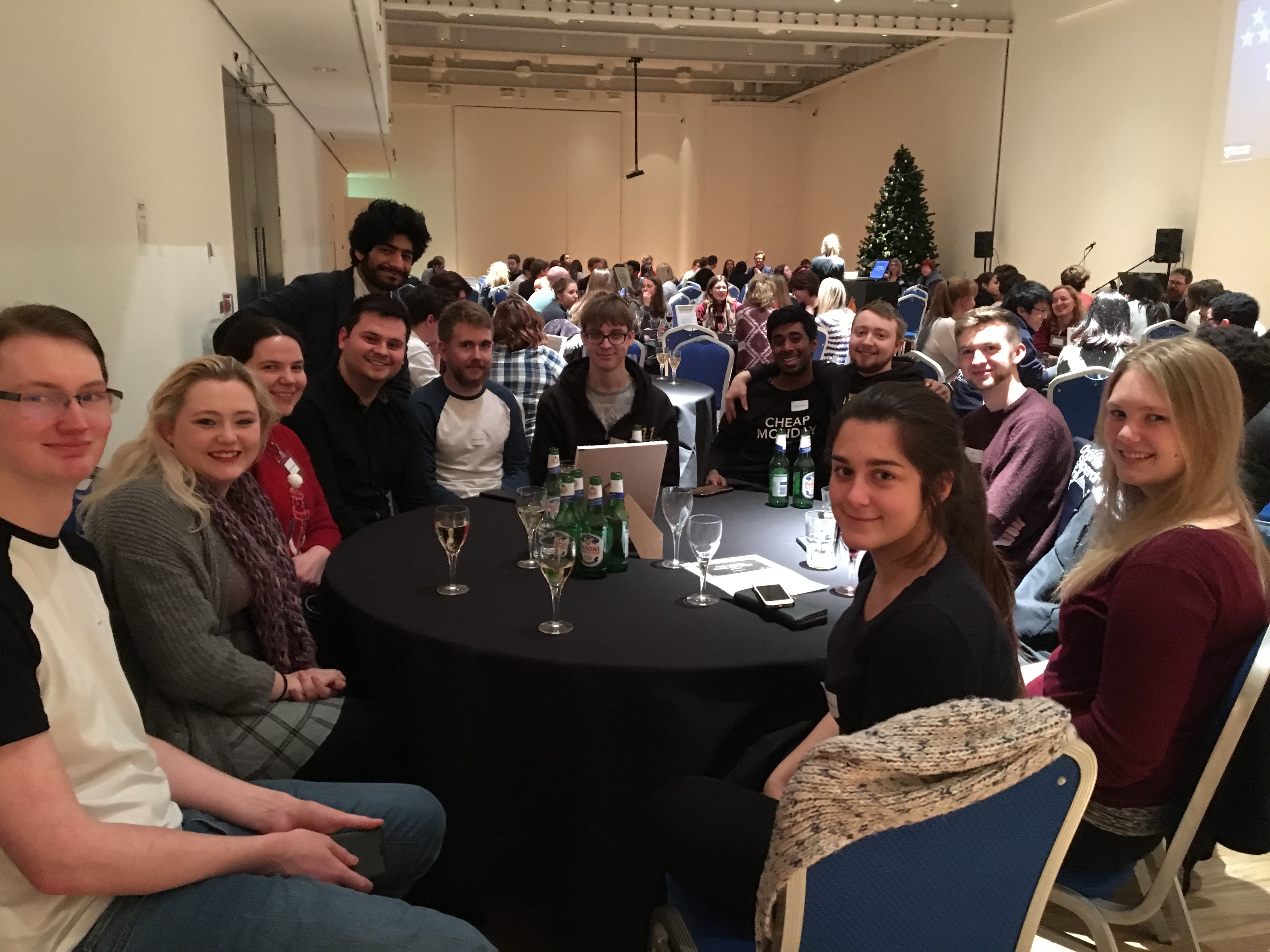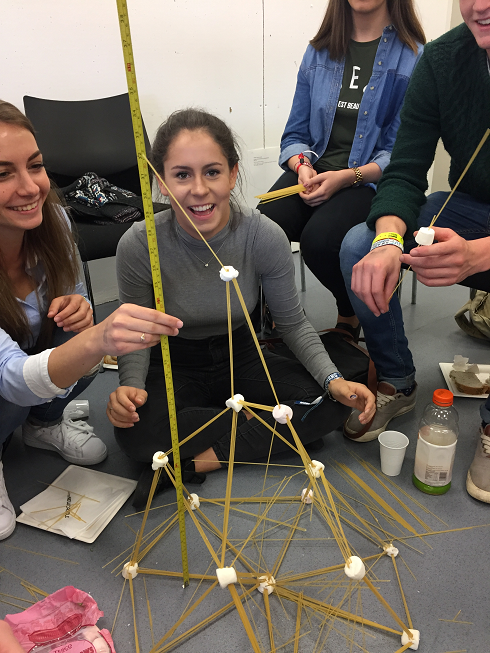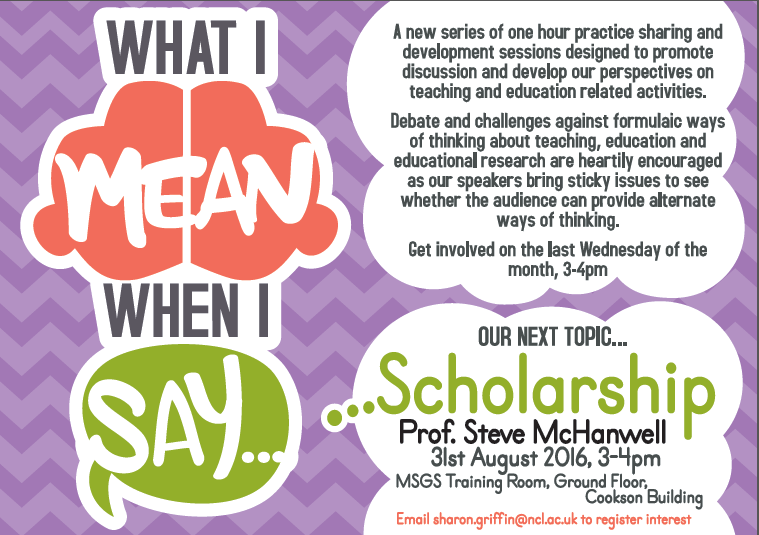VC Award-winner Clare Guilding of the School of Medical Education is always trying new things to keep her students ahead of the game.
Clare’s innovative approach has won her many accolades in addition to her recent VC Award, and seen her re-design the way that medical students learn certain subjects.
 She said: ‘I am really always looking to try new things, always thinking about what’s working well and what’s not.’
She said: ‘I am really always looking to try new things, always thinking about what’s working well and what’s not.’
Put in charge of the pre-clinical pharmacology courses for medical students at Newcastle, Clare felt that a new approach was needed to make sure that students gained the skills they needed at earlier stages of the course.
Clare lead the development of a new Clinical Pharmacology, Therapeutics and Prescribing curriculum which now runs as a vertical strand through the MBBS degree programme at Newcastle University.
She said: ‘I realised that students were not being asked to prescribe – such a crucial element of their jobs – in the pre-clinical years. I thought that these practical skills should be introduced earlier so we redesigned the curriculum to make sure that they are working on prescribing throughout their five years, rather than it being introduced in the third year.
‘Now in the first two years we’ve got pharmacists who run practical prescription writing workshops with our students and we run inter-professional education events based around prescribing and diagnosis with pharmacy students from Sunderland University.’
Indeed Clare’s implemented re-write of the curriculum for pharmacology has led her to advise other institutions and even the British Pharmacology Society on curriculum design.
She said: ‘I presented the curriculum nationally and in March 2015 was invited to join a four-strong core team managing the development of the British Pharmacological Society’s new core pharmacology curriculum which has furthered my professional development.’
Clare is always looking into the use of new technologies to deliver learning. An early advocate of the use of TurningPoint in lectures, she more recently introduced SimMan (a simulated patient) into her teaching ‘to help deliver realistic simulations of the professional environments that our students will eventually work in.’
She said: ‘SimMan is an artificial dummy who breathes, has heart beats, bleeds, blinks, responds to drugs etc. He can be programmed to display a wide range of physiological and pathophysiological signs and responds appropriately to treatment for example cardiopulmonary resuscitation or administration of oxygen.
I run simulations of medical emergencies in the lecture theatre and at key clinical points in the scenario students vote individually and anonymously (using TurningPoint) on the most appropriate course of action (for example which drug should be administered).
‘The option with the most votes is applied to SimMan and the students then observe the physiological effects this has in real time. This provides the students with a unique opportunity to apply learned principles in a safe, controlled learning environment and it offers them instantaneous feedback on their actions’
As a result of her work with SimMan, Clare won the British Pharmacological Society Education Prize and Association for the Study of Medical Education (ASME) Educator Innovator Award in 2015.
She is very keen to encourage the students to develop their team-working skills, and with colleagues from Newcastle and Sunderland universities has integrated a seminar on IPE (Interprofessional Education) into the curriculum.
‘In the professional environment our students will be making decisions as part of a varied team of health-professionals so learning in inter-professional groups is an important part of the students’ education.’
This proved so popular that it was expanded into a day long ‘Interprofessional Education Conference’. This year the event had 400 students rotating round a variety of interprofessional tasks, facilitated by 50 academic staff members from medicine, pharmacy and nursing backgrounds from across the North East of England.
Five major external organisations ran stands on the day and more are being recruited, including the GMC (General Medical Council) for the next iteration of the conference in 2017.
Clare is now looking forward to a new challenge as Dean of Academic Affairs at NUMed in Malaysia, where she starts in January.
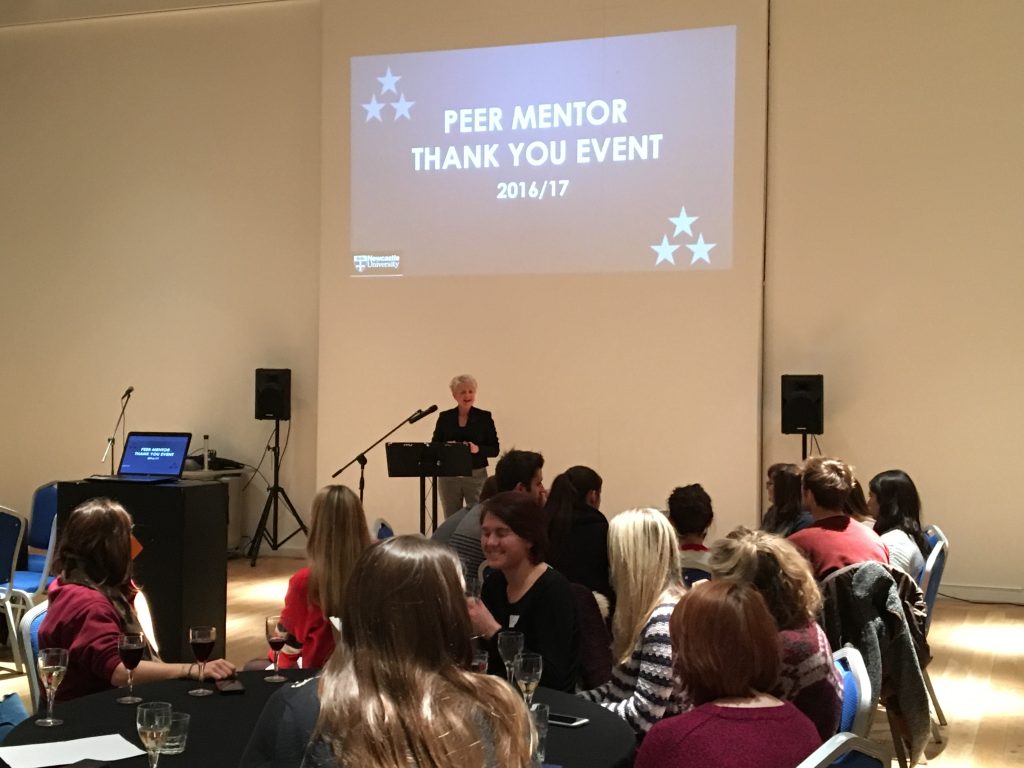
 The winners were Sachin Anand from Dental Sciences, Anjuli Chatterjee from Newcastle Law School and James Fortune from School of Biology.
The winners were Sachin Anand from Dental Sciences, Anjuli Chatterjee from Newcastle Law School and James Fortune from School of Biology.